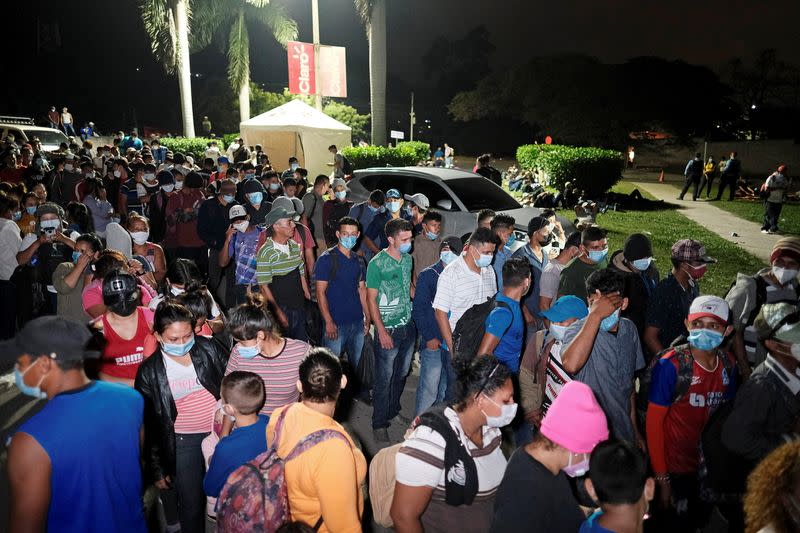By Gustavo Palencia and Sofia Menchu
TEGUCIGALPA (Reuters) – Hundreds of Central Americans camped overnight in front of the bus terminal in the city of San Pedro Sula in Honduras, eagerly awaiting the departure of a caravan of migrants on Friday morning that hoped to reach the States United.
Images from local television showed an increasing number of families, many carrying small children, gathering over Thursday night, despite Central American authorities sending soldiers to regional borders to prevent migrants from crossing.
This week’s caravan will be the first of the year and will take place less than a week before the inauguration of US President-elect Joe Biden. Biden promised a more humane approach to migration, in a departure from President Donald Trump’s anti-immigrant policies.
In addition to dealing with the coronavirus pandemic, Central America is suffering from a growing hunger crisis, high levels of violence and the devastating consequences of two major hurricanes that hit the region in November.
Central American and Mexican officials have stepped up efforts to stop the caravan well before the border with the United States, using anti-virus measures as the latest tool to contain migration.
This is likely to be a relief to Biden, whose advisers expressed particular concern about the prospect of an increasing number of migrants seeking to enter the United States in the early days of his government.
On Thursday, Guatemala cited the pandemic to declare emergency powers in seven border provinces where migrants frequently transit en route to Mexico. The measures limit public demonstrations and allow the authorities to disperse any public meeting, group or demonstration by force.
Honduras and Guatemala have announced that they will send thousands of soldiers to preemptively prevent caravan members, while Mexico also deployed agents to its southern border on Thursday.
(Reporting by Gustavo Palencia in Honduras, Sofia Menchu in Guatemala, Lizbeth Diaz in Mexico City and Laura Gottesdiener in Monterrey; Editing by Kenneth Maxwell)
